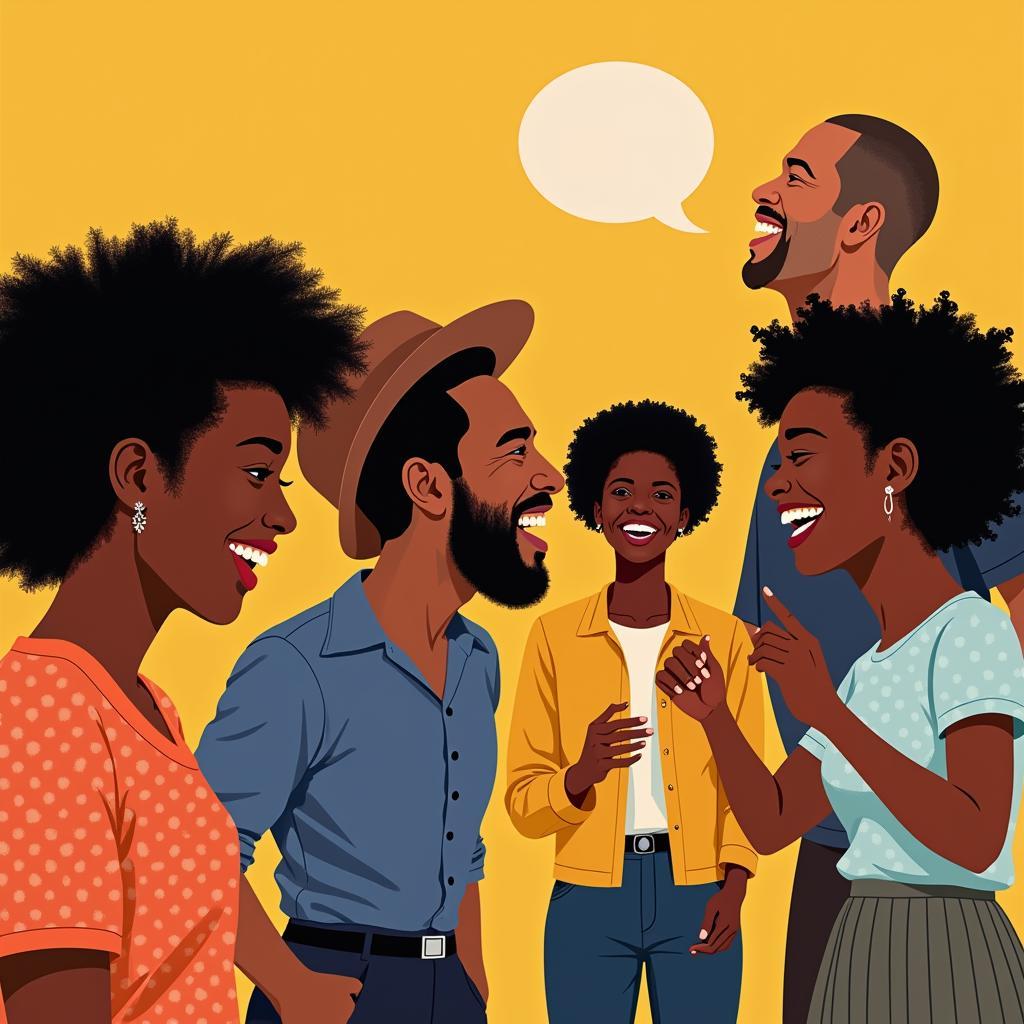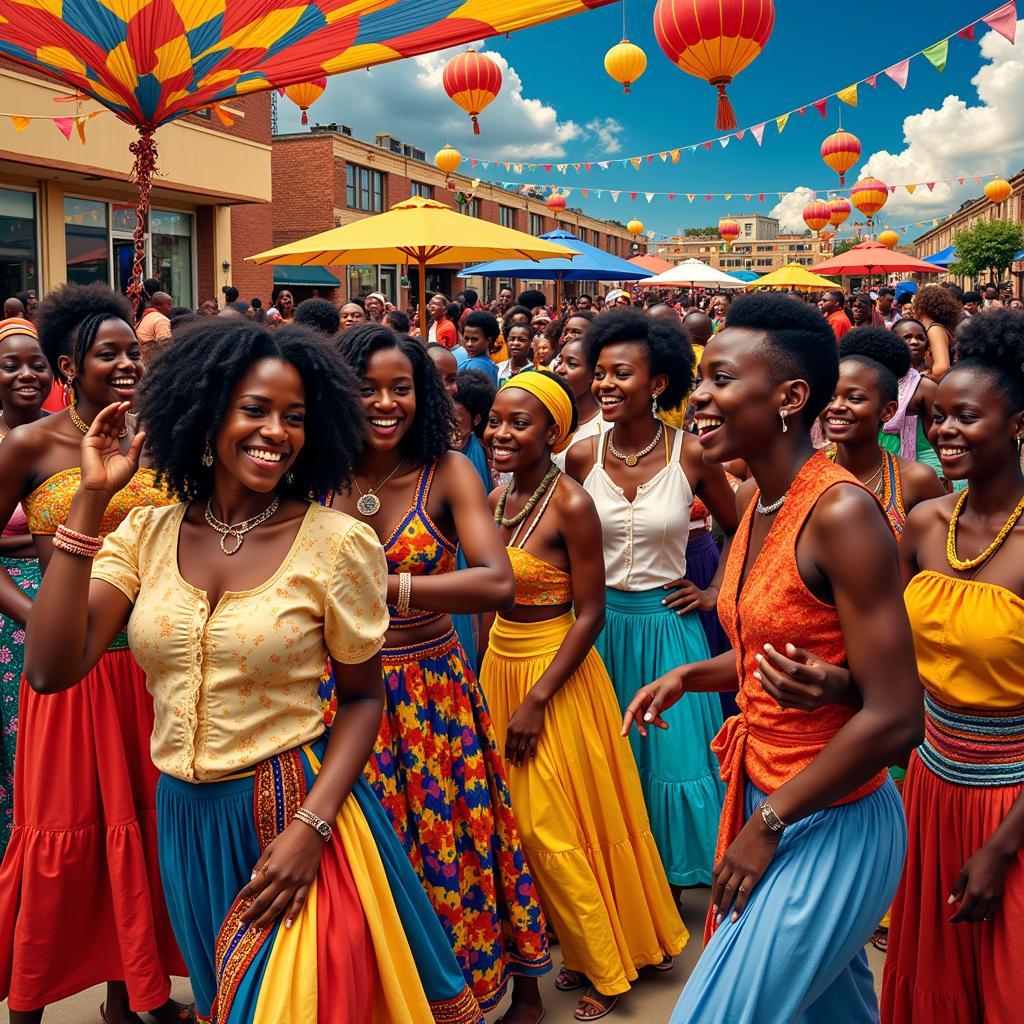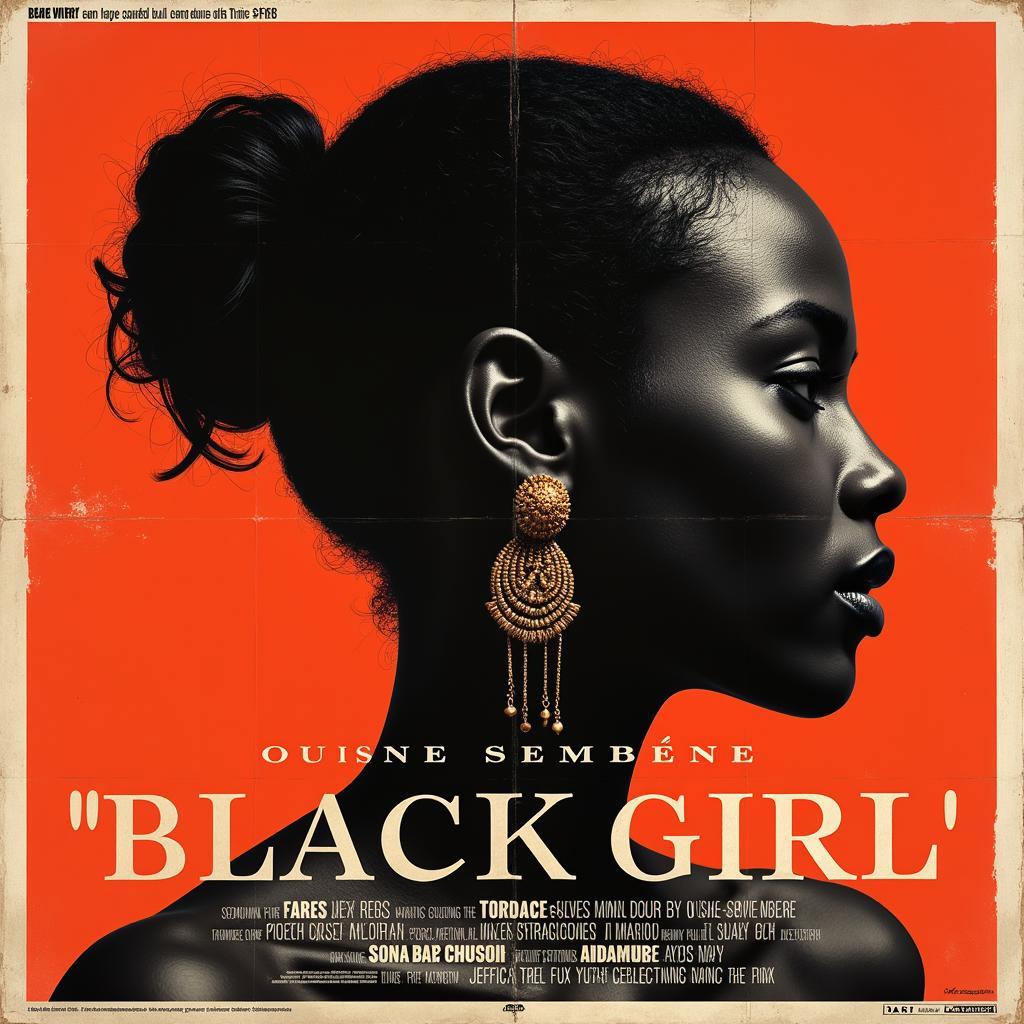African American Slang Phrases: A Deep Dive
African American Slang Phrases are more than just words – they’re a vibrant tapestry of history, culture, and shared experience. These phrases, often rooted in African American Vernacular English (AAVE), offer a glimpse into the unique linguistic creativity of Black communities. While some phrases have transcended cultural boundaries and become part of mainstream American English, others remain specific to certain regions or demographics.
The Evolution of African American Slang
The origins of African American slang can be traced back to the transatlantic slave trade, where enslaved Africans from diverse linguistic backgrounds were forced to communicate in a new language. This fusion of West African languages with English created a distinct dialect, rich in metaphors, wordplay, and rhythmic expressions.
Over centuries, AAVE evolved, reflecting the social, political, and cultural realities of Black Americans. From the coded language used during segregation to the hip-hop slang popularized in the late 20th century, African American slang has continually adapted, reflecting the ever-changing landscape of Black identity.
 People Gathering and Talking
People Gathering and Talking
Unpacking the Nuances of African American Slang Phrases
One of the key characteristics of African American slang is its dynamic nature. New phrases emerge constantly, often fueled by social media trends and pop culture. However, it’s essential to approach these phrases with sensitivity and respect.
While some phrases are widely used and accepted, others might carry specific cultural connotations or be considered inappropriate outside of certain contexts. It’s crucial to be mindful of the potential impact of these phrases and to use them responsibly.
From “Lit” to “On Fleek”: Decoding Popular Slang
Several African American slang phrases have entered mainstream vocabulary, often adopted and adapted by other cultures. “Lit,” meaning exciting or enjoyable, and “on fleek,” used to describe something perfectly executed, are prime examples of this cultural exchange.
 Social Media Feed with Slang
Social Media Feed with Slang
These phrases, often originating from music and entertainment, demonstrate the fluidity of language and the powerful influence of Black culture on broader linguistic trends.
Navigating Cultural Sensitivity and Appropriation
The use of African American slang by individuals outside of the Black community requires careful consideration. While cultural exchange is natural and enriching, it’s crucial to avoid appropriation, which involves adopting elements of a culture without understanding or respecting their origins and significance.
Using African American slang respectfully entails:
- Understanding the context: Be aware of the meaning and potential connotations of the phrase.
- Avoiding stereotypes: Don’t use slang to reinforce harmful stereotypes or generalizations.
- Being mindful of your audience: Consider the setting and who you’re talking to.
- Being willing to learn: If you’re unsure about the meaning or appropriateness of a phrase, ask someone knowledgeable.
African American slang language can be a powerful tool for connection and understanding, but it’s essential to approach it with respect, awareness, and a willingness to learn.
African American Slang: A Window into Cultural Richness
While this exploration has only scratched the surface, it’s clear that African American slang phrases are more than just casual expressions. They’re a testament to the resilience, creativity, and cultural dynamism of Black communities. By engaging with these phrases thoughtfully and respectfully, we can gain a deeper appreciation for the richness and complexity of African American culture.
 A Celebration of African American Culture
A Celebration of African American Culture
FAQs
1. Is it okay for people outside of the Black community to use African American slang?
Using AAVE requires sensitivity and awareness. While cultural exchange is positive, avoid appropriation. Understand the context, steer clear of stereotypes, and be mindful of your audience. When in doubt, ask someone knowledgeable.
2. How does African American slang contribute to the richness of language?
AAVE, including its slang, adds vibrancy and nuance to English. Its metaphors, wordplay, and rhythmic expressions reflect a unique cultural perspective and historical experience, enriching communication and understanding.
3. What are some resources for learning more about African American slang and AAVE?
African American Vernacular English examples
African American Webster dictionary
African American Vernacular English AAVE
Remember, language is fluid and ever-evolving. Engaging respectfully with AAVE provides a window into a rich culture and history, fostering deeper understanding and appreciation.

